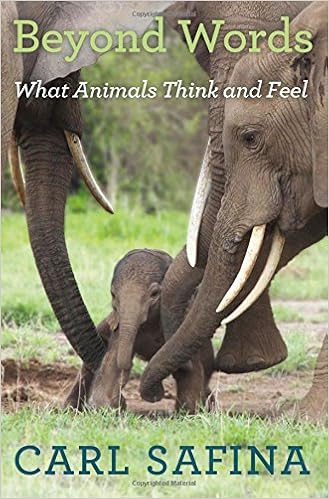Carl Safina's new book Beyond Words: What Animals Think and Feel would once have been unthinkable for any scientist who hoped to maintain the respect of his colleagues. Until recently, questions about what animals might think or feel were off limits for scientists to even contemplate, let alone write books about. That attitude has changed slowly, thanks to the work of Jane Goodall and a few others.
Safina discusses many species, including the human one, in his book, but he focuses mainly on elephants, wolves, dogs (domesticated wolves) and killer whales. What these animals have in common is their complex social relationships, and this requires more developed brains. "Dolphins, apes, elephants, wolves, and humans face similar needs: know your territory and its resources, know your friends, monitor your enemies, achieve fertilization, raise babes, defend, and cooperate when it serves you," he writes.
He ridicules scientists past and present who fail to see the evidence of animals thinking and feeling that is right in front of their eyes, evidence that most pet owners notice every day. "People who don't see the evidence aren't paying attention," he says. Safina's research took him to scientists who are paying attention, those who have devoted their lives to observing elephants, wolves and killer whales. The scientists tell amazing stories about these creatures mourning the loss of family members, heroically risking their own lives in defense of others, solving difficult problems and, especially in the case of elephants and killer whales, communicating complex messages over long distances.
The author may spend too much time on the soapbox for his own good. He is right to explain how these intelligent and sensitive animals are endangered by shortsighted human behavior, but his repeated slams against humans (such as, "Creating problems seems to be one of the things that 'make us human.'") seem to go too far in the other direction. Instead of claiming animals are far inferior to human, he argues humans are far inferior to animals. Yet humans are the ones he expects to buy his book.

No comments:
Post a Comment